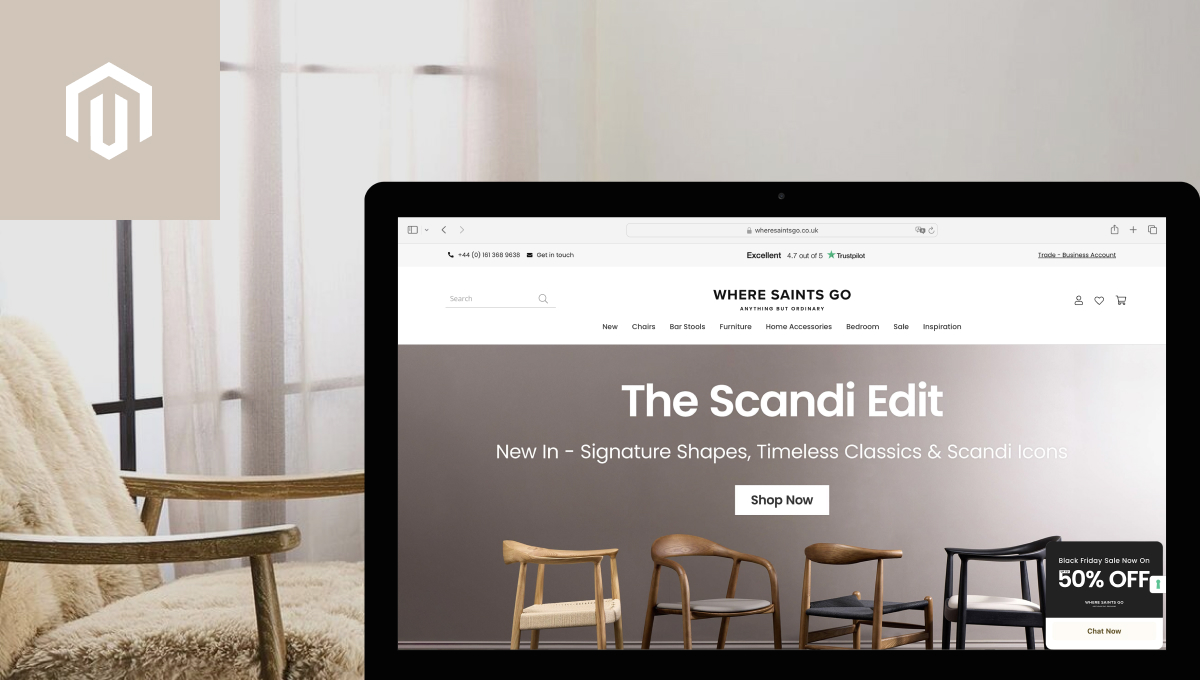– We specialise in developing tailored ecommerce platforms for furniture businesses, ensuring seamless user experiences and optimized sales funnels.
– Our team excels in creating responsive and visually appealing designs that showcase furniture products in the best possible light across various devices.
– We have extensive experience integrating inventory management systems, CRM platforms, payment gateways, and other third-party solutions to streamline operations.
– MageCloud employs effective SEO strategies and digital marketing campaigns to drive targeted traffic, increase conversions, and improve overall online visibility for furniture retailers.
We understand the nuances of the furniture industry, including the importance of stunning visuals, detailed product descriptions, and a smooth checkout process. Our goal is to empower furniture retailers to succeed in the competitive online landscape.

